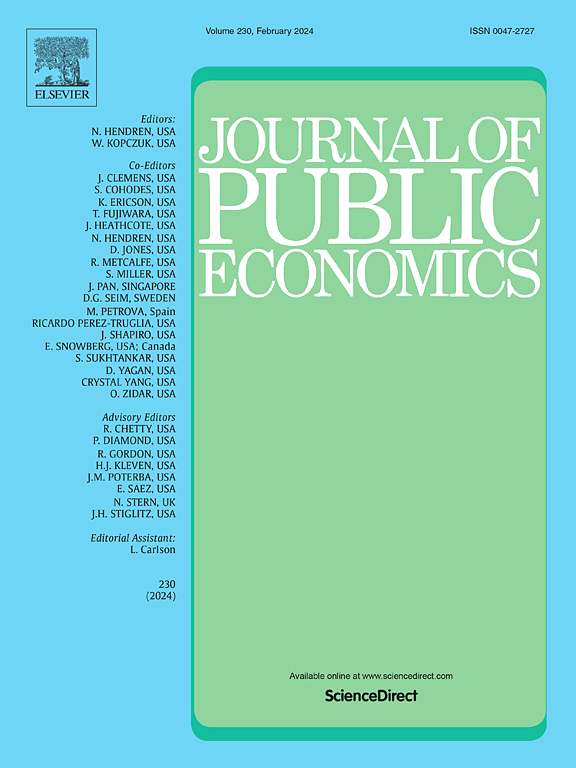Vote and trade: An efficient mechanism for common-pool resource management with stock externalities
IF 3.4
1区 经济学
Q1 ECONOMICS
引用次数: 0
Abstract
The efficiency of inter-temporal resource allocation in a rights-based common-pool resource management system can be compromised by a stock externality. This occurs when one user’s extraction depletes the resource stock and then raises future harvesting costs for all users. This paper introduces a vote-and-trade (VAT) mechanism, an enhancement to standard cap-and-trade (CAT), to correct this inefficiency. VAT operates in two stages: first, resource users vote to set a binding, period-specific extraction cap; second, they trade the resulting rights in a within-period market. Our theoretical model demonstrates that while standard CAT is dynamically inefficient, VAT can achieve the social optimum under mild conditions by using voting to aggregate agents’ private information and collectively choose the optimal inter-temporal extraction path. Laboratory experiments confirm this prediction, showing that VAT substantially outperforms CAT in aggregate economic efficiency.
投票与交易:具有存量外部性的公共资源管理的有效机制
在基于权利的公共资源池管理系统中,资源的跨期配置效率会受到存量外部性的影响。当一个用户的提取耗尽了资源储备,然后增加了所有用户未来的收获成本时,就会发生这种情况。本文引入了一种投票与交易(VAT)机制,这是对标准限额与交易(CAT)的改进,以纠正这种低效率。增值税分两个阶段运行:首先,资源使用者投票设定有约束力的、特定时期的提取上限;其次,他们在期限内市场交易由此产生的权利。我们的理论模型表明,标准CAT是动态低效的,而增值税可以在温和条件下通过投票来聚合代理的私有信息并集体选择最优跨期提取路径,从而实现社会最优。实验室实验证实了这一预测,表明增值税在总经济效率上大大优于增值税。
本文章由计算机程序翻译,如有差异,请以英文原文为准。
求助全文
约1分钟内获得全文
求助全文
来源期刊

Journal of Public Economics
ECONOMICS-
CiteScore
14.10
自引率
2.00%
发文量
139
审稿时长
70 days
期刊介绍:
The Journal of Public Economics aims to promote original scientific research in the field of public economics, focusing on the utilization of contemporary economic theory and quantitative analysis methodologies. It serves as a platform for the international scholarly community to engage in discussions on public policy matters.
 求助内容:
求助内容: 应助结果提醒方式:
应助结果提醒方式:


